Maree Drury | ABCN
The role of mentoring in developing students from low SES backgrounds financial capability
Maree will demonstrate how ABCN’s unique mentoring model can support students from low SES backgrounds to be more confident talking about money and making better financial choices. Evaluation data shows that students’ confidence in having money matter conversations increased from 46% before the program to 85% after the program, reflecting a significant change of 39%.
Elisabeth Sinnewe | Queensland University of Technology
How engaged are young Australians with their money? A cluster analysis of financial habits
Elisabeth will discuss her research project, which surveys young Australian adults’ financial habits, such as saving, investing, and using credit. Her analysis revealed three financial habit clusters: ‘financial explorers’, ‘traditional savers’, and ‘disengaged’. She provides examples of how financial behavioural interventions should be tailored to an individual’s financial habit profile.
Classroom 2 | Money and relationships
Moderator | Roset Khair
Jenny Rolfe-Wallace | Sprout Education Group
From numbers to narratives: Money, relationships and resilience
Jenny will demonstrate why educating students about healthy approaches to managing money in relationships and the signs, impacts, and mechanisms of financial abuse can help them make informed decisions, protect themselves from potential abuse, and seek help if needed. Such opportunities can also assist people to identify and change their own potentially abusive attitudes and behaviours.
Ann Kayis-Kumar |UNSW
Let’s talk about “sexually transmitted debts”
Ann will explore the consequences of “sexually transmitted debt” and the extent to which financial abuse impacts Australians. She’ll explore how gender roles and power imbalances in couples can create unfair financial situations, and participants will learn how to spot these risks, protect themselves, and understand why this matters to create a more equal society.
Ruth Pirrie | National Anti-Scam Centre
Stop. Better safe than scammed.
In this presentation, Ruth will provide an overview of scams, how to stay safe and where to access support.
Classroom 3 | Public education and resources
Moderator | Katrina Samios
Andrew Dadswell | ASIC Moneysmart
Insights from ASIC’s Moneysmart
Andrew will provide an update on the latest insights and campaigns from ASIC’s Moneysmart. Moneysmart provides information to help Australians to be in control of their financial lives, as part of ASICs remit to promote confident and informed participation by investors and consumers in the financial system.
Tanya Livermore & Emma Chow | RBA Education
Economic literacy – what is it, why is it important, and what is the RBA doing about it
In this presentation, Tanya and Emma will explain economic literacy, how it is measured, and how the RBA supports it. Economic literacy is important because it helps people make more informed choices, better understand the world, and influence public discourse and government actions.
Belinda Zipevski & Daniel St Flour | Talk Money with Ecstra Foundation
Improving financial capabilities with the Talk Money program
Belinda and Daniel will discuss delivering and facilitating the Talk Money with Ecstra Foundation program, which provides free workshops to primary and secondary schools. They will share the common questions students ask, and the feedback students and teachers give about the program.
Classroom 4 | Integrating financial literacy into learning
Moderator | Peter Tsambalas
William Devenish | Marcellin College Randwick
Student Demand for Financial Literacy
William will look at the demand for financial literacy in education, the need for financial literacy, as well as possible ways to integrate this into learning.
David Watson | MA NSW
Experiencing high school mathematics
David will explore some online simulations as examples of how educators can invoke the feelings of financial mathematics. We’ll look to place the student in the position of the person who is earning, spending and investing money.
Jakhongir Kakhkharov | Australian Catholic University
Teaching finance: Designing a learner-centred curriculum and innovative authentic assessments
Jakhongir will present highlights from his research, which investigated the key elements of the curriculum design process for finance subjects. He will explain the factors that influenced our decision to implement Problem-Based Learning (PBL) and an authentic assessment (Case Study Exam) that equips learners with relevant workplace skills and competencies.

